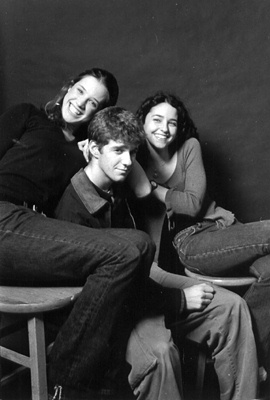All Nonfiction
- Bullying
- Books
- Academic
- Author Interviews
- Celebrity interviews
- College Articles
- College Essays
- Educator of the Year
- Heroes
- Interviews
- Memoir
- Personal Experience
- Sports
- Travel & Culture
All Opinions
- Bullying
- Current Events / Politics
- Discrimination
- Drugs / Alcohol / Smoking
- Entertainment / Celebrities
- Environment
- Love / Relationships
- Movies / Music / TV
- Pop Culture / Trends
- School / College
- Social Issues / Civics
- Spirituality / Religion
- Sports / Hobbies
All Hot Topics
- Bullying
- Community Service
- Environment
- Health
- Letters to the Editor
- Pride & Prejudice
- What Matters
- Back
Summer Guide
- Program Links
- Program Reviews
- Back
College Guide
- College Links
- College Reviews
- College Essays
- College Articles
- Back
Living with Strangers
In the United States alone there are 397,122 kids who are living in foster care. Many of these kids will not go back to their biological parents or even go to a relative’s home. Tim was ten when he was removed from his parents care and put in a foster home. Unlike most children in foster care Tim was lucky enough to be put in a home with relatives. Mike and Terry Anon, his grandparents, were fostering children for around three years before they took Tim and his brother into their home. Tim’s grandparents have been doing foster care for seven years and a total of about sixty kids have gone through their home, but Tim was different because he was their grandchild. He is now nearing his fifth year living in their home, and he has seen kids come and go. Sometimes the kids stay for a while, other times they leave overnight.
When Tim turned 14 the DHS made him sign an agreement to never mistreat a child in his grandparents care. This assures the agency knows no harm will come to the children. Even though Tim isn’t the caretaker of the kids, he is under agreement as if he was. Tim does babysit from time to time, for his grandparents when they are gone.
Foster children come from all over the state with different backgrounds and personal problems to deal with. Tim said, “There are moments when they get annoying, but you have to learn to deal with it.” Reacting to a kid in a harsh or even a peaceful manner may cause the child to overreact to what you are telling them, making the situation worse for you and the child. Living in a foster home means you get to meet a lot of different children from many different backgrounds. One kid in particular he remembers was Fernando. Fernando stayed in Mike and Terry’s care for about a year which is a little less than the average time of 33 months. Tim says he remember Fernando being “a really chill person to hang out with.” He did state Fernando does still come over on weekends to hang out with the family. Fernando moved back in with his mother two years ago. This is a very rare occasion for foster children. Most go to live with other families they don’t know, or stay in the system until they are old enough to take care of themselves. Mr. Tim was also a rare occurrence because he got to live with a family member that was willing to care of him.
Being in a foster family is a very peculiar situation. Many of the children come from broken homes. Living with them can be an annoyance. Defiance and several other behavioral problems can be present, but you have to grasp the fact no one has taught them how to act right. The child could still be recovering from the incident which put them in the home, which may be the reason they are acting a certain way. Even though it can be a pain, foster children need people like the Anon family to look after them. If there was no such thing as foster care, many children would be out on the street, or worse, stuck in an abusive situation with a father or mother who doesn’t care about their health or safety. In Tim and his brother’s case they were lucky enough to go to a relative’s home, so they would not have to live with strangers or be separated in the system like many siblings are.

Similar Articles
JOIN THE DISCUSSION
This article has 0 comments.
